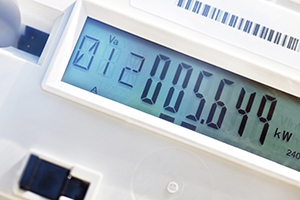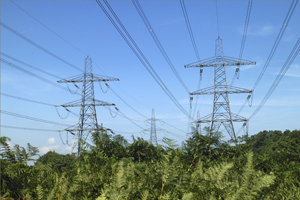Changes known as P272 are on the way that will implement the mandatory use of Half-Hourly (HH) data to ensure more
How to deal with your energy supplier when moving business premises?
Make sure you don't get caught on out of contract rates when you move to new premises.
Before you move notify your current energy supplier
Ring your energy supplier at least 48 hours before your move. Tell them the date of your move and your new address so it can send you a final bill.
Your energy supplier will often organise a meter reading or ask you to take a meter reading on the day of your move. Find contact details for your energy supplier on the rear of your last bill.
Your current supplier may ask you for proof that you are leaving the premises if you are in a contract with them. If you provide evidence that you are giving up control of the premises they will normally let you exit the contract without penalty but do check the Terms & Conditions of the contract you are in.
Take a meter reading on moving day
You should take a meter reading on your last day in the property to avoid being overcharged by your energy company. Pass the reading on to your supplier and take a note for your own records. Good idea - take a picture of the reading/s showing on your meter as evidence. Suppliers will send you a final bill to settle your account once you have moved.
If you rent the property you should take a note of your meter readings and confirm these with your landlord before you move out.
It's also a good idea to let the new occupant of your premises know which energy company has been supplying the property. You could leave a note near the meter, or inform your landlord or estate agent.
What to do after you move
Take gas and electricity meter readings when you move into your new property. Again we would advise that you take a picture of the reading/s showing on your meter as supporting evidence.
Find out which energy company supplies your new building
When you move into a new property you'll automatically be placed on a 'deemed contract' with the energy company that has been supplying the property up until your move-in date.
You will need to take gas and electricity meter readings in your new property and give these to the existing gas and electricity supplier of the property.
You can find out who supplies the gas to your premises by phoning the meter number helpline on 0870 608 1524.
To find out who supplies the electricity, contact the local electricity distribution company. The telephone number will be in the telephone directory under 'Electricity'. You should ask the operator for the company's meter point administration service (MPAS) department.
Give the existing energy supplier meter readings
Ring your new property's existing energy supplier and give them your details, meter readings from your new property and the date when you moved in. They will create your new account for you.
Most suppliers will automatically place you onto their standard tariff when you first move in. Find out what this means with our guide to energy tariff types.
Check you are getting the best deal on your gas and electricity
Use Utility Assist? We can help you find the best energy deal for your new premises. If you do not have accurate information about how much gas and electricity you will use in your new premises, we can make a prediction based your previous history, your operating sector and drawing on our knowledge gained over many years in the industry.
Switch energy suppliers using Utility Assist?
Good idea but before doing anything we need to know what you want. Do you want green energy, lowest cost energy, do you have special billing requirements, are your meters of the correct size for what you are using, is bill checking needed and are there any planned usage changes or new sites planned? We then action a full market check to see what will fit your requirements and present and explain our findings to you in an easily understandable way. If a change of supplier is involved, we manage the process fully so it is seamless and hassle free.
Notes
What is a Deemed of standard tariff?
This is the supplier's 'default' or ‘deemed’ tariff. It will have variable prices that can go up and down with the market.
Deemed tariffs do not have exit penalty fees and the contract will have no fixed end date.
Deemed prices are not usually the supplier's cheapest and can increase or decrease.
Deemed Contracts/Rates
A Deemed Contract is where someone takes a supply and no contract has been put in place by that person on that property (Usually a change of tenancy). It is not because a contract has not been renewed.
A Deemed Contract will have variable prices that can go up and down with the market.
They do not have exit penalty fees and the contract will have no fixed end date.
They are not usually the supplier's cheapest and can increase or decrease.
Out of contract rates is where a contract has expired and a rate that the supplier has decided to charge for this situation is applied. The vires for this will be taken from the expired contract with a clause that says the supplier can apply these rates in these circumstances. It is not a deemed contract unless the original contract says it is.
Deemed Rates Obviously this is applied to deemed contracts but to make administration efficient some suppliers charge deemed rate in an out of contract situation. This does not make a deemed contract and we would stongly advise that the Terms and Conditions attached to it be clearly understood before you take any action .



